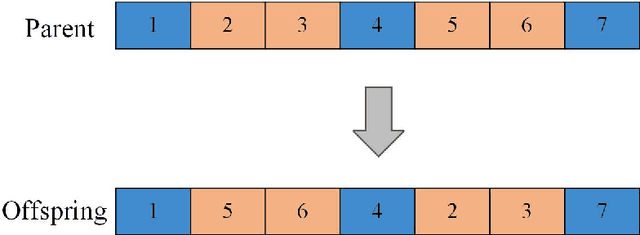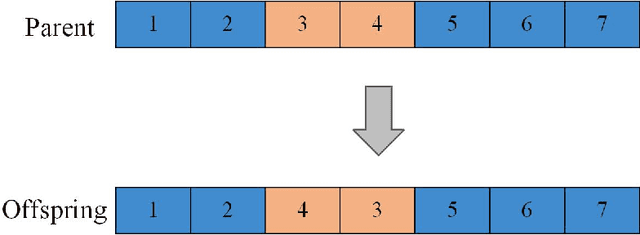Luona Wei
RL-EA: A Reinforcement Learning-Based Evolutionary Algorithm Framework for Electromagnetic Detection Satellite Scheduling Problem
Jun 12, 2022



Abstract:The study of electromagnetic detection satellite scheduling problem (EDSSP) has attracted attention due to the detection requirements for a large number of targets. This paper proposes a mixed-integer programming model for the EDSSP problem and an evolutionary algorithm framework based on reinforcement learning (RL-EA). Numerous factors that affect electromagnetic detection are considered in the model, such as detection mode, bandwidth, and other factors. The evolutionary algorithm framework based on reinforcement learning uses the Q-learning framework, and each individual in the population is regarded as an agent. Based on the proposed framework, a Q-learning-based genetic algorithm(QGA) is designed. Q-learning is used to guide the population search process by choosing variation operators. In the algorithm, we design a reward function to update the Q value. According to the problem characteristics, a new combination of <state, action> is proposed. The QGA also uses an elite individual retention strategy to improve search performance. After that, a task time window selection algorithm is proposed To evaluate the performance of population evolution. Various scales experiments are used to examine the planning effect of the proposed algorithm. Through the experimental verification of multiple instances, it can be seen that the QGA can solve the EDSSP problem effectively. Compared with the state-of-the-art algorithms, the QGA algorithm performs better in several aspects.
 Add to Chrome
Add to Chrome Add to Firefox
Add to Firefox Add to Edge
Add to Edge